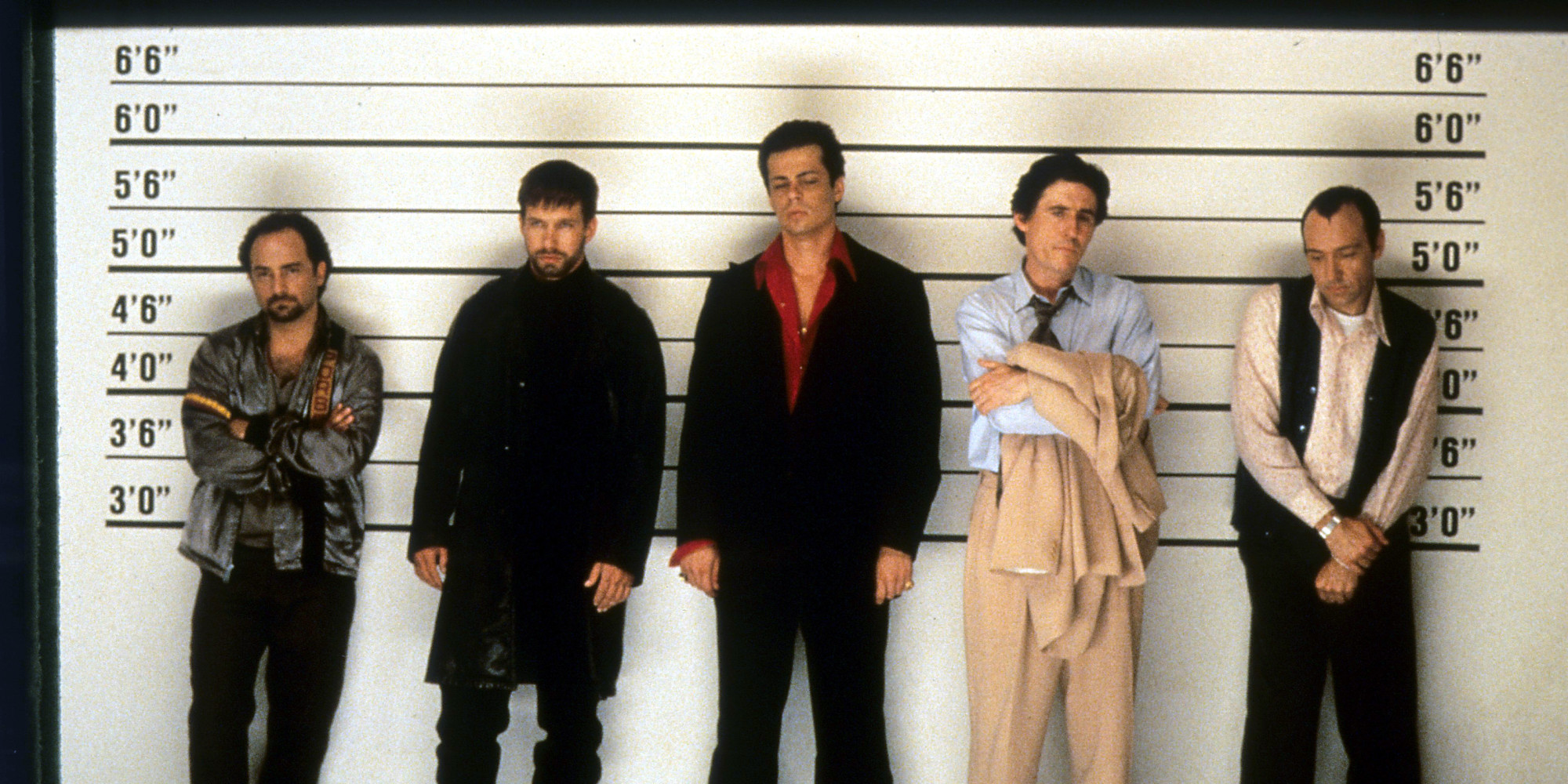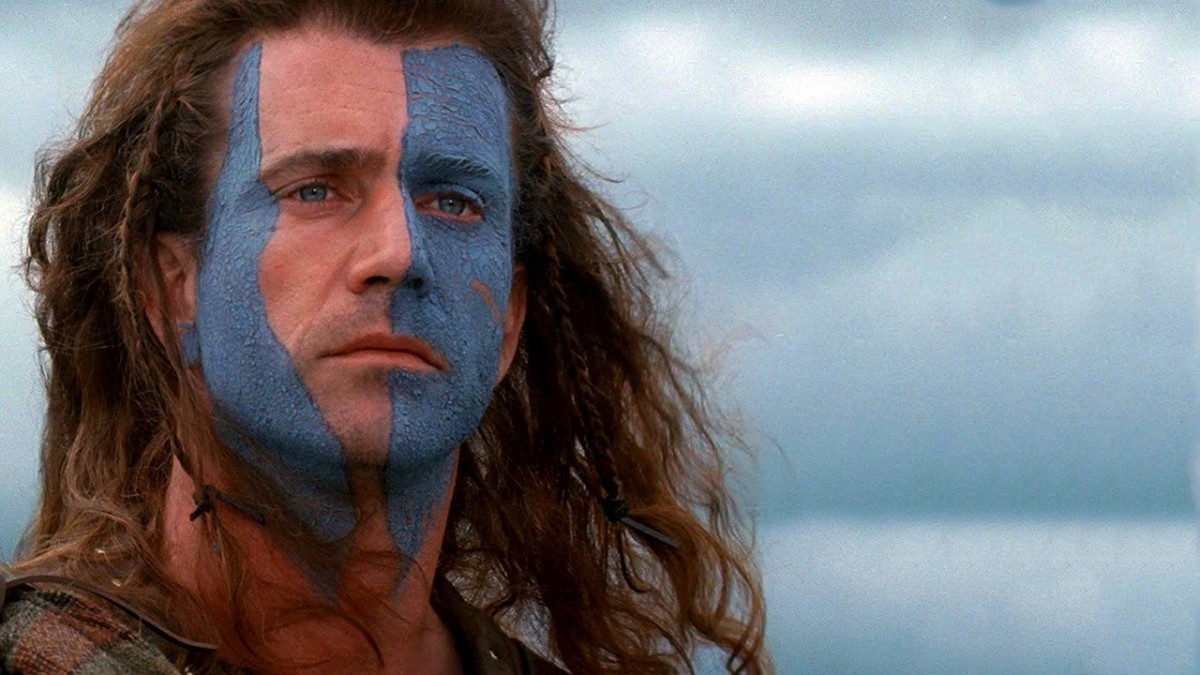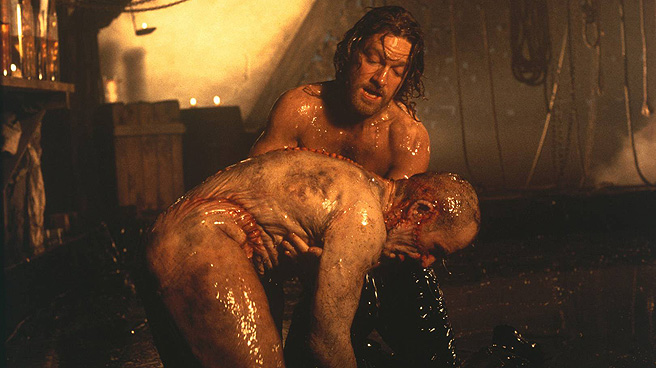Caution: Like revenge, Seven is best served cold. There will be spoilers in this review so if you haven’t seen it, please go watch it.
 30 years have passed since Brad Pitt asked “What’s in the box?” A moment that has been etched in the annals of cinema. I was too young to see Seven in the cinema the first time around and despite having seen it numerous times, nothing compared to watching the 30th anniversary screening with an audience. Playing to a near-packed house, it was intriguing to sit and wonder who hadn’t seen the film and who had no idea what to expect. To say the tension in the theatre was palpable would be stating the obvious.
30 years have passed since Brad Pitt asked “What’s in the box?” A moment that has been etched in the annals of cinema. I was too young to see Seven in the cinema the first time around and despite having seen it numerous times, nothing compared to watching the 30th anniversary screening with an audience. Playing to a near-packed house, it was intriguing to sit and wonder who hadn’t seen the film and who had no idea what to expect. To say the tension in the theatre was palpable would be stating the obvious.
Detective Lieutenant William Somerset (Morgan Freeman) is one week away from retirement. A brilliant trope that sets up an inevitable bumpy week for Somerset and his new partner, David Mills (Brad Pitt). Unlike his elder partner, Mills is brash and idealistic. There’s an appealing arrogance to him that’s more charismatic than obnoxious. Somerset’s plans to wind down in peace are shattered by the emergence of a serial killer who uses the seven deadly sins as motifs. With three murders committed, the pressure mounts on the detectives to find the murderer before he finishes his masterpiece.
Seven is such a simple movie in its premise that it makes the execution all the more remarkable. From the opening credits, there is both something familiar and uniquely fresh about the film. It can’t be stated enough that much familiarity is born from Seven’s influence on its successors. The gritty nightmarish look of the unnamed city, one plagued by crime and perpetual rain, is reminiscent of a comic book arguably due to the comic book movies it has influenced. There is an otherworldly presentation to Seven that remains grounded. There is nothing fantastical (other than the punctuality of the delivery driver at the end). Yet, it is shrouded in a neo-noirish cloak of misery that the city itself is suffocating.
 Freeman and Pitt have great chemistry as their differences allow them to bounce off each other, creating tension, friction and a warm friendship. The emotional strength of the climax wouldn’t be as effective without this relationship, one that is earned and never forced. David Fincher was sent Andrew Kevin Walker’s script which included the original ending, the one we got to see and the one that the studio wanted changed. It was too bleak, too downbeat with the studio wanting a more optimistic climax that would send audiences home happy. Thankfully, looking to redeem himself after the self-loathed Alien 3, Fincher fought for the original ending to remain. Fincher produces a slow-burning thriller with little action and little waste. What follows like a standard police procedural is turned on its head when the killer, John Doe (Kevin Spacey), reveals himself in an unexpected head-scratching moment. Soaked in blood, Doe surrenders himself to our two heroes although he isn’t finished playing his game.
Freeman and Pitt have great chemistry as their differences allow them to bounce off each other, creating tension, friction and a warm friendship. The emotional strength of the climax wouldn’t be as effective without this relationship, one that is earned and never forced. David Fincher was sent Andrew Kevin Walker’s script which included the original ending, the one we got to see and the one that the studio wanted changed. It was too bleak, too downbeat with the studio wanting a more optimistic climax that would send audiences home happy. Thankfully, looking to redeem himself after the self-loathed Alien 3, Fincher fought for the original ending to remain. Fincher produces a slow-burning thriller with little action and little waste. What follows like a standard police procedural is turned on its head when the killer, John Doe (Kevin Spacey), reveals himself in an unexpected head-scratching moment. Soaked in blood, Doe surrenders himself to our two heroes although he isn’t finished playing his game.
As the film enters its finale, cinematographer Darius Khondjin brightens the screen and pulls back the darkened layers. Mills, Somerset and Doe wait in the desert for the murderer to unveil the latest part of his work. Despite knowing what comes next, the sheer suspense and drama that soaks through the screen is uncomfortable. The trio engage in a deadly game with a rollercoaster of emotions spinning around the scene. Anger, confusion, pity, jealousy, and even smugness, flood the senses as the penny drops for not only us, but Mills leading to a brutal conflict of right and wrong. We become Mills at that point, we know what we want him to do with justice becoming an abstract term with no discernible answer.
Seven is an exceptional film. A stone-cold classic that revels in its nihilism and doesn’t make any apologies, and neither should it. It doesn’t compromise and has endured for three decades due to its unflinching gaze into the dark streets of the city and the souls of its characters. Its influence perseveres in modern cinema, most recently in Matt Reeves’ The Batman, which borrows heavily in its tone and characterisation, and the Saw franchise with visuals and a villain that could share the same universe. While it looks like it would have been released straight to streaming today, Seven remains a perfect argument for cinema.
- Companion (2025) – Review - January 30, 2025
- Seven (1995) – Review - January 20, 2025
- Top 10 Films of 2024 – Thomas’s Picks - December 24, 2024







